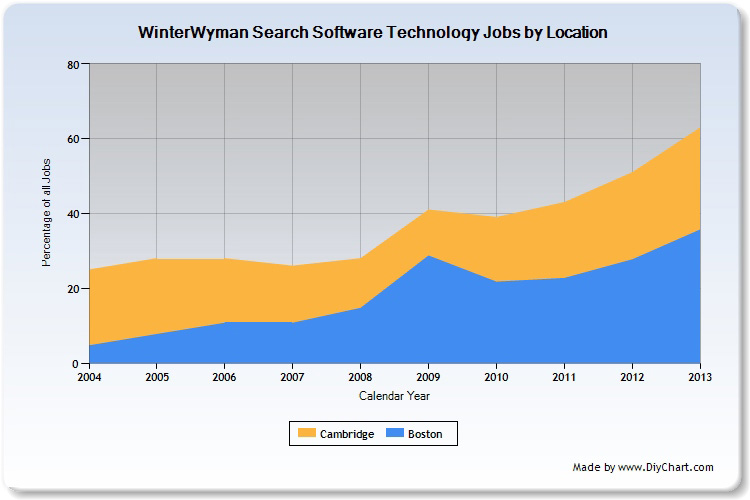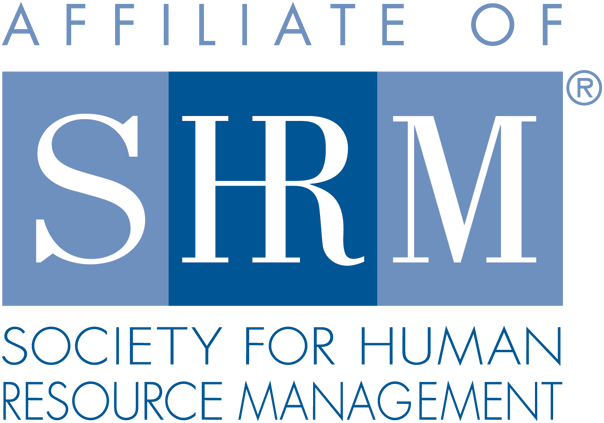
| Past Issues | Advertise | www.nehra.com | insights archive |
Hot Locations to Look for a Job or Open a New Office
![]() Print this Article | Send to Colleague
Print this Article | Send to Colleague
Ten Years of Data on Job Trends in Boston and Boston's Suburbs for Tech Start-Ups: Hot Locations to Look for a Job or to Open a New Office
By Ben Hicks, Recruiter, Partner/Manager, Software Technology Search, WinterWyman
The past two years, especially the last 12 months, have revealed incredibly interesting trends and a changing technology job market based on data from WinterWyman. There are major changes, driven primarily by start-ups and small companies, in where these companies are choosing to locate.
Start-ups and meet-ups were a big factor in Boston’s hot factor
After the dot-com bubble burst in the early 2000s, the Boston tech
scene became far more open and collaborative with activities like meet-ups and
other networking events. Suddenly, being in an urban area where there was a
concentration of talent and a sense of community and collaboration was more
attractive than being in the suburbs such as Waltham and Burlington, and
companies began to target Boston real estate.
Boston’s revitalization of the Waterfront was instrumental
In parallel, Boston’s government leaders sparked an interest in
revitalizing and developing the open spaces along the waterfront and into South
Boston, naming it the "Innovation District." With lots of new office space and
room to grow, tech companies flocked to the area. To further amplify this
migration, rents in Kendall Square ballooned as tech giants like Microsoft, Google
and Amazon scooped up big chunks of real estate in and around the area.
A decade of data from WinterWyman on where the tech jobs are
Below is a graph generated from data WinterWyman has compiled during the
last 10 years. It shows the percentage of WinterWyman’s active Software Search
jobs located in Boston or Cambridge for each of those 10 years. The trends
can’t be ignored.

- While the percentage of Cambridge jobs grew from 20 percent to 27 percent, the percentage of Boston jobs grew from 5 percent to 36 percent in that same time span.
- Combined, more than 63 percent of all of the tech jobs taken last year were located in Boston or Cambridge – with the majority of the Boston jobs along the waterfront and the majority of the Cambridge jobs in Kendall Square.
What does this chart not show?
- Combined, jobs located in Burlington, Lexington and Waltham accounted for only 13 percent of the total demand WinterWyman saw last year.
- This is a massive change from the market in the late 90's where those three towns would have accounted for the majority of the jobs.
What this means for job seekers: tech jobs Boston = YES
When seeking software engineering jobs, the concentration of small, growing
tech companies is clearly along the Boston waterfront, and to a lesser degree,
in Kendall Square. It is highly advisable to include one or both locations in
your job search in order to get access to the best the greater Boston tech
market has to offer.
What this means for employers: an office in the city is a smart choice
For technology companies looking to grow,
you should seriously consider the Boston waterfront. It is a huge selling point
to call Boston home, and you will have access to a large portion of the
applicant pool. Moreover, you will be tied directly into a growing and very
dynamic tech community and this will help in promoting your brand and in
recruiting top talent.
No worry if you are not a city mouse looking for a job
Not everyone lives near or wants to commute to the city for work. Yes,
if you live in Groton, Nashua or Lowell, for example, you are at a bit of a
disadvantage for the current job market.
There are jobs in the suburbs, but one must be patient; the long view prediction is that as start-ups grow and hire more talent, the trend will be to either relocate or add additional office locations in the suburban locations such as Burlington, Waltham and Lexington.
